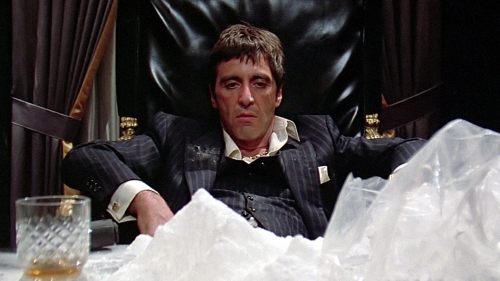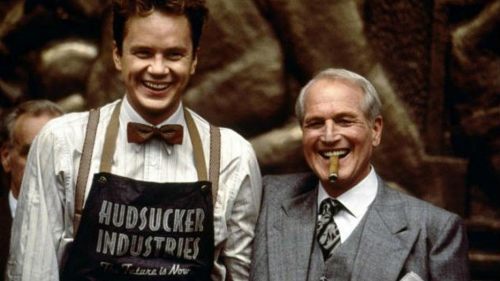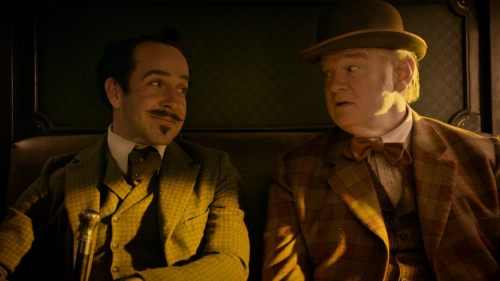INSIDE LLEWYN DAVIS: The Search For Meaning
There’s something ethereal about Bruno Delbonnel’s cinematography. A dream-like haze that envelopes the characters and the 1960s New York setting. A constant emotional and intellectual fog that we have to cut through, day by day, as we try and understand both the world around us, and ourselves.
For all intents and purposes, Inside Llewyn Davis is a musical. Not just because it features characters that sing songs and play instruments, but because each of these songs forms an integral part of the narrative, exhibiting theme, character and even the political setting of the era in the form of "Please Mr. Kennedy." Oscar Isaac’s Llewyn Davis is a character searching for… something. Fame, recognition, perhaps success? Those are all things he certainly wants, but there is a basic need that supersedes those wants, and something that goes hand-in-hand with them in the case of artistic success. The need to understand, and in Llewyn’s case, to be understood. As much as he wants to land a gig and make it big, that’s not something he can do until and unless he understands his music. Much like an actor, or any other performer for that matter, the artist understanding their own material is paramount to other people being able to understand it. If there’s no authenticity, then there’s no point to it.
The search for meaning isn’t a new concept in the now 31-year oeuvre of Joel and Ethan Coen. The Dude from The Big Lebowski is drafted into a war that is not his. Fargo’s Marge Gunderson gets caught up in events that she has no hand in setting into motion, as she tries to make sense of them (“I just don’t understand it”). No Country For Old Men ends with Sheriff Bell trying to interpret a dream. In A Serious Man, this search for meaning isn’t just theme or subtext, it’s the plot itself, as Larry Gopnick (“I don’t understand”) goes from rabbi to rabbi in search for guidance when he can’t make sense of his misfortunes.
Back when The Dissolve was still around, Matt Singer suggested that Inside Llewyn Davis was an exploration of what Joel and Ethan Coen would be like if they lost one another, and our own Devin Faraci talked about questions of authenticity with regards the folk scene at the time. In either case we, the audience, are faced with finding meaning within the film itself. There is, of course, nothing holding us to the idea that we must – some questions are best left unanswered – and yet there’s something almost bothersome about not being able to unlock all its secrets. Then again, perhaps they aren’t secrets at all.
I began this piece by talking about the film’s cinematography, which is an admittedly weird choice (this is ‘music month’ on BMD, after all) and yet the look of the film is vital to understanding it. It’s the world seen through Llewyn’s weary, blood-shot eyes, and the dream-like haze is in line with our own perception of this musical mystery. It’s a film that, admittedly, I didn’t quite “get” the first time around, but it’s one that I knew I loved the moment it ended. As a film student at the time, many of Llewyn’s struggles felt similar to my own, especially his inability to truly connect with his own art and create something special in the face of two (or more) daunting paths laid out in front of him, each dealing with various degrees of failure success.
The thing that resonated with me the most however, and I acknowledge the outright cynicism of it, was Llewyn’s rejection of other artists.
Rare is the moment in the film when Llewyn truly appreciates music. As art, as entertainment, and even as business. His inability to connect with his own work translates into an inability to connect with those who can, and he casts the very idea of authenticity aside until and unless he can find it within himself. Perhaps not even then. There’s a tendency within artists, one that I’ve been guilty of myself, to over-critique their more successful peers from a place of jealousy. The actor variation of the light bulb joke is indicative of a truth that many of us don’t want to accept (“How many actors does it take to screw in a light bulb? A hundred: one to screw it in, and ninety-nine to say they could’ve done it better”) because it’s one of the ugliest sides of the artist, the selfish but human side that’s corrosive to art itself. It’s also the side holding Llewyn back.
The film is more or less bookended by Llewyn being beaten up outside of the club for insulting a woman whose authenticity he sees as completely down-market, as opposed to the group of preppy, sweater-vested youths singing folk songs about a prison inmate on death row, i.e. a place, person and situation they have no understanding of. He’s caught in a cycle of willful rejection of music at its purest, and thus, a cycle of rejecting any form of truth. It’s no wonder then that he picks up the wrong cat, looking only at its fur and coming to the conclusion that it belongs to the Gorfeins, the same way he places superficial appearances above actually being able to click with one’s art, and with one’s emotions.
Admittedly, my connection to the film doesn’t quite stop there. The reasons it stuck with me weren’t something I was able to fully parse until I had the proper distance, the kind of hindsight I can only hope Llewyn managed to find after the credits had rolled. There was an extended period of time where I outright rejected musicals (gasp!) which had to do with my own inability to truly understand authenticity in art. That’s a difficult situation for someone who grew up in India, where music and melodrama are embedded within the culture, and even more so for someone who claims to love cinema in all its forms. ‘Realism’ is something that too many of us misunderstand when it comes to the discourse, and t one point, I even questioned whether having a film score was cheating, since it manipulated the audience into feeling something. But that’s all of cinema then, isn’t it? None of it is ‘real’ in the factual sense, and even documentaries rely on editing to get their point across. Musicals aren’t ‘real’ as we understand them, we don’t ordinarily converse in the form of song, yet musicals are as authentic as theatre and cinema can get because of how proudly they wear their hearts on their sleeves. The truth isn’t always a factual thing, especially when it comes to creating art, and music is a medium that takes full advantage of this. Thankfully my film score problem (a bizarre moment of crisis, if I’m being honest!) was quickly resolved when a friend re-assured me that as long as people feel it, it’s real and authentic. Maybe that’s something Mike could’ve helped Llewyn understand he was still around.
At one point, Llewyn loses his cool when Mrs. Gorfein tries to sing Mike’s part in a song. There’s no question that Mike was irreplaceable to Llewyn (he’s lost without him), but I do wonder what it would’ve sounded like if he had let Mrs. Gorfein go ahead and sing. It certainly wouldn’t have sounded the same to him, and may not have been very good, but what were her reasons for wanting to perform it? She was not on stage, nor was she recoding in album. She wanted to sing for the sake of singing, and for the sake of remembering Mike. Llewyn had trapped himself in an impenetrable state of mourning, one that suppressed his ability to authentically create, but perhaps its most destructive side-effect was that it impeded his ability to appreciate as well. In this case, his emotions got the better of him, and he stopped her from celebrating the life of their mutual friend – something she was likely doing from a place of pure intention, both for Mike, and for Llewyn.
It’s at the Gorfeins' that we see how lost Llewyn truly is, which is fitting since he’s the one who loses their cat. The joke that comes from a misunderstanding over the phone, “Llewyn is the cat,” is one of the funnier lines in the film (along with “Where’s its scrotum?”), but unfortunately, it’s also one of the most revelatory. The real cat is lost, perhaps gone forever, and despite having searched for it, Llewyn ends up with an inauthentic cat the same way his search for himself yields nothing but inauthenticity. Llewyn really is the cat; lost, homeless, and eventually castrated (so to speak), lacking any control over what happens to him, and he carries his inauthentic self with him everywhere he goes.
Inside Llewyn Davis is still a film I don’t fully understand (although the pieces by Matt and Devin certainly helped), and that seems like a counter-intuitive thing to say when trying to have a voice of authority on the subject, but it’s the kind of film where ‘understanding’ in the strictest sense isn’t necessarily equitable to a factual recognition of its goals. Taking a step back, it’s clear that that there’s a certain eeriness to the haze that can’t quite be unraveled. These are, after all, simply interpretations. That’s not to say that we shouldn’t attempt to deconstruct it in order to get to the root of what it is and why it works (why else would we be here?), but it’s a strange and unique beast, a film where trying to understand not only its meaning, but meaning itself, is part of the journey.
Is Llewyn’s search for meaning in music something that will help him achieve greatness, or will it help him find himself? As an artist trying to make it, are those two things even that different? Is finding a connection to his art something will help him understand himself, or is it the other way around? These aren’t questions that have definite answers, and whether it’s Llewyn wondering this to himself or us asking them of the film, the lack of an answer is certainly troubling in its own way, but it’s also an impetus. Unanswered questions have driven humanity since humanity has existed. Religion and science, two seemingly opposed institutions, are pillars supporting the same human need: the need to seek out answers, and to find some sort of understanding of who we are.
The third pillar is art.
It’s why Llewyn does what he does. It’s why the Coens do what they do. It’s why we try and interpret films the way we interpret dreams. It’s why I’m writing about it, and it’s why you’re reading this right now. Inside Llewyn Davis does not provide any answers, about its characters, about the world around us, or about who we are, but it’s a reflection of the questions. And perhaps the questions themselves, and our constant need to ask them, are the most authentic answer we have for now.



